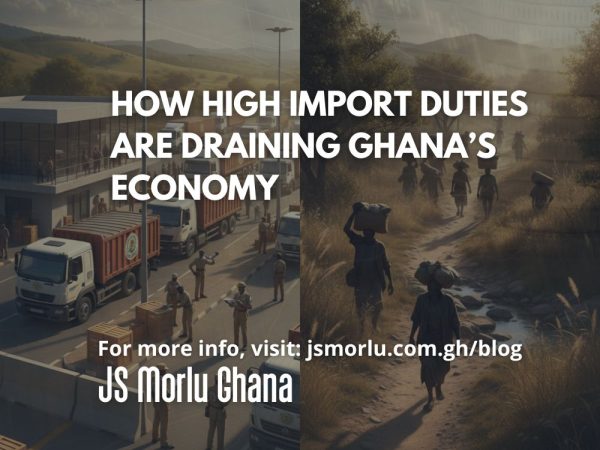A Growing Shadow Economy
Ghana’s vibrant trade sector once a symbol of West African resilience is now facing a shadowy adversary: smuggling.
According to the Food and Beverages Association of Ghana (FABAG), billions of cedis are lost every month as smugglers bypass official import channels. Their culprit? High import duties and complex port procedures that make legal trade feel like an uphill battle.
FABAG’s October 27th statement was blunt: “Smugglers are reaping huge profits while the government loses vital tax revenue.”
The result is a double tragedy, honest traders are punished, while illicit networks thrive.

What’s Being Smuggled, and Why It Matters
FABAG’s intelligence reports from border towns highlight a sharp increase in the illegal inflow of:
- Rice
- Cooking oil
- Sugar
- Alcoholic beverages
- Textiles
These untaxed goods often flood local markets at lower prices, undercutting Ghanaian producers and weakening investor confidence.
To make matters worse, many of these products fail to meet quality standards putting both consumers and local industries at risk.
The Hidden Toll on Ghana’s Economy
FABAG estimates that Ghana is losing hundreds of millions of cedis each week from unmonitored smuggling activities at both official and unofficial entry points.
That’s more than lost revenue, it’s a threat to national stability. The unchecked trade:
- Weakens the cedi
- Reduces employment in manufacturing and distribution
- Undermines industrial growth
- Shrinks government tax bases essential for infrastructure and development
In FABAG’s words, “This issue transcends economics it is a matter of national security and survival.”

A Call for Smarter Enforcement
FABAG isn’t just sounding the alarm they’re urging action.
The group called on the Ministry of Finance, Ghana Revenue Authority, Ministry of Trade and Industry, and National Security to collaborate on smarter border control strategies, including:
- Technology-driven surveillance at key entry points
- Data sharing between agencies and border communities
- Transparent trade monitoring systems to reduce leakages
They also warned that unless the system is modernized, Ghana risks hollowing out its industrial base allowing organized crime to thrive where commerce once did.
Why Tax Reform Is the Missing Piece
With the 2026 Budget on the horizon, FABAG is pushing for an overhaul of Ghana’s import tax regime.
High duties, coupled with long, bureaucratic port procedures, have unintentionally turned smuggling into a “business alternative.”
A fairer, streamlined system could achieve three outcomes:
- Increase compliance more importers would operate legally.
- Boost revenue reducing the need for higher domestic tariffs.
- Protect local industries by leveling the playing field.

Lessons Beyond Ghana: The Compliance–Incentive Balance
This isn’t just a Ghanaian story, it’s a global trade dilemma. When tax and duty systems are overly complex or punitive, they often push traders toward informal economies.
At JS Morlu, we often advise governments and international businesses alike that compliance thrives when the system is both fair and efficient. High tax rates without proportional transparency often breed avoidance, not revenue.
The real solution lies in policy modernization, data-driven border control, and incentive-based compliance programs strategies that reward honest traders rather than punish them.
The Bottom Line
Smuggling isn’t just a criminal issue, it’s an economic feedback loop triggered by policy inefficiency.
FABAG’s warning should be a wake-up call: Ghana’s growth depends on balancing tax equity, trade facilitation, and economic inclusion.
Without that balance, the nation risks losing not only billions in revenue but the very foundation of its industrial progress.
About JS Morlu
At JS Morlu, we specialize in international tax planning, customs compliance, and economic advisory. Our experts help businesses and policymakers navigate complex fiscal environments, identify compliance gaps, and build systems that foster both growth and fairness.
Contact us to learn how our global advisory team can help your organization develop smarter tax and trade strategies that drive sustainable development.
